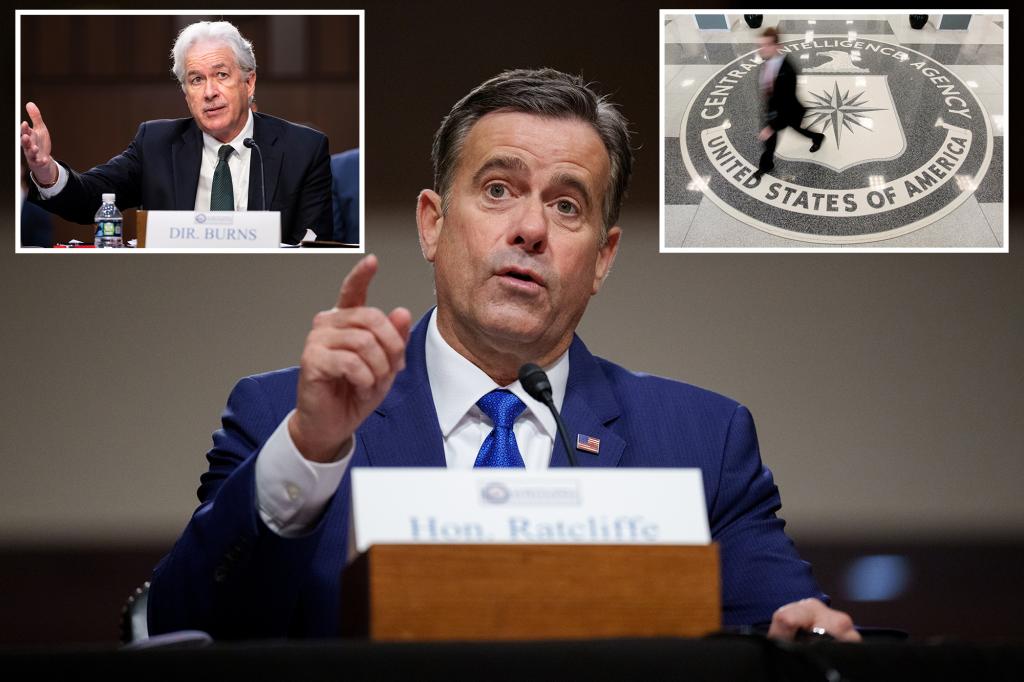John Ratcliffe, in his Senate confirmation hearing for CIA Director, emphasized his commitment to depoliticizing the agency and prioritizing the threat posed by China. He vowed to restore the CIA’s focus on its core mission of objective foreign intelligence collection, promising a meritocratic environment and urging employees who disagreed with this vision to seek other employment. Ratcliffe highlighted a recent audit revealing concerns within the CIA about the objectivity of their intelligence products, some of which reach the President’s Daily Brief. He invoked his past actions, such as challenging the FBI’s Trump-Russia probe and the dismissal of the Hunter Biden laptop story as Russian disinformation, as examples of his commitment to truth and objectivity. He pledged to refuse any political interference in intelligence assessments, focusing instead on “stealing secrets” from adversaries, especially China, which he considers the top national security threat.
Ratcliffe’s emphasis on China as the primary national security threat echoed sentiments expressed by outgoing FBI Director Christopher Wray, who labeled China the “defining threat of our generation.” Ratcliffe reiterated his previous actions as Director of National Intelligence, where he increased resources dedicated to addressing the China threat. He underscored his conviction that China poses the most significant danger to the US, a belief informed by his access to comprehensive intelligence. This focus on China signals a potential shift in the CIA’s priorities under Ratcliffe’s leadership, with an anticipated intensification of efforts to counter Chinese espionage and influence operations.
The Senate Intelligence Committee appeared receptive to Ratcliffe’s nomination, suggesting a smooth path to confirmation. While some Democrats raised concerns about potential “loyalty tests” targeting civil servants, Ratcliffe assured them such practices would be prohibited. He characterized the current national security landscape as the most challenging in US history, citing issues like the southern border and the influx of individuals with terrorist ties. This assessment framed his approach to leading the CIA, emphasizing the need for a focused and objective intelligence apparatus.
Several senators highlighted past failures of the US Intelligence Community, including misjudgments regarding the Afghan government’s stability, Ukraine’s resistance to Russia, the Hamas attack on Israel, South Korea’s martial law declaration, and the collapse of the Syrian regime. Ratcliffe attributed these failures partly to distractions from the core mission of intelligence gathering, such as what he termed “politically motivated, bureaucratically imposed social justice agendas.” He argued that a renewed focus on objective intelligence collection would be crucial to avoiding similar missteps in the future.
Ratcliffe also addressed other key intelligence issues, including the declassification of information, maintaining trust with allies, the controversial FISA Section 702 surveillance authority, anomalous health incidents like Havana syndrome, and the origins of the COVID-19 pandemic. He defended FISA Section 702 as an indispensable national security tool while acknowledging its potential for abuse, referencing the FBI’s Crossfire Hurricane investigation. He emphasized the need for safeguards to prevent political misuse of this authority, asserting its critical role in providing actionable foreign intelligence. On the issue of COVID-19’s origins, he committed to improved communication and efforts to prevent future pandemics, while acknowledging the lack of definitive resolution on the source of the virus. He stressed the importance of understanding the pandemic’s causes, which he estimated may have led to 25 million deaths globally.
Ratcliffe’s opening statement included an acknowledgement of current CIA Director William Burns and a commitment to a smooth transition. Burns, in a recent interview, highlighted the CIA’s establishment of a new China Mission Center, reflecting the agency’s increasing focus on the strategic challenge posed by China. Burns characterized the current geopolitical landscape as one of revolutionary change, marked by intense major power competition and technological advancements comparable to the Industrial Revolution. This underscores the context within which Ratcliffe is poised to assume leadership of the CIA, inheriting a complex and rapidly evolving global security environment. His confirmation hearing suggests a focus on reorienting the agency towards what he perceives as its core mission, prioritizing the threat from China, and ensuring the objectivity of its intelligence products.

